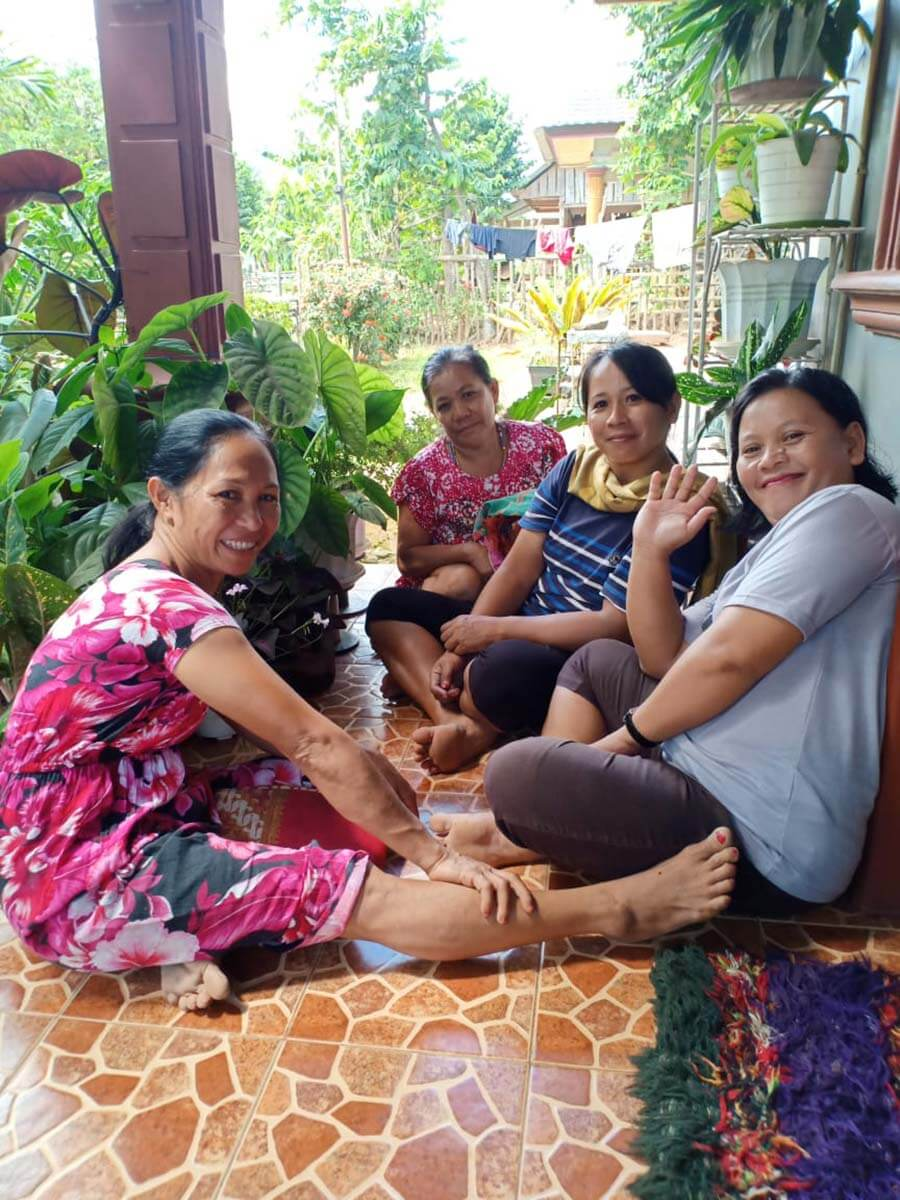Weaving versus Boom-and-Bust in Sulawesi


Travel into back-country West Sulawesi requires the crossing of dozens of rivers
During the two pandemic years that Threads of Life was unable to purchase textiles, weavers were among the many in West Sulawesi lured by the promise of producing patchouli oil. We wrote about this in past newsletters and we were grateful that there was some income that could be generated outside of weaving. Indonesia produces 85% of the world's patchouli oil. This oil production is centered in many remote areas in Indonesia, including West Sulawesi around Mamaju, where Pung and Yansen began their journey into the hinterlands to meet the weavers’ groups.
Along the roads they saw stills to produce the oil from harvested patchouli leaves. At the beginning of the pandemic patchouli oil could be sold to the distributors in the coastal city of Mamaju for Rp 400,000 (US$27.20) per kilo but within a year that price had dropped by half due to oversupply.
Families became disillusioned as prices dropped and they calculated their true costs of setting up and running the stills compared to the income earned. Many now suspect the whole boom was created by those supplying the stills, as they are the only ones to have walked away with a profit. The effect on the environment was considerable as hectares of forest were cleared for firewood to feed the stills. Additionally, no other crops can be grown with the patchouli plants, so large tracts of cocoa and coffee were also cleared.


Patchouli oil production requires lots of land for growing and lots of lumber for the extraction stills. In contrast, weaving using natural dyes builds sustainable incomes and supports a responsible relationship with the landscape.
As we have seen elsewhere over the years, the long-term relationships we have with weavers and the (usually) stable market we can offer them, insulate them and their families from the agricultural boom-and-bust cycles that are frequent in rural Indonesia.
We are looking forward to rebuilding our weaving communities in remote areas so that income earned can again paid for schooling, including university, as well as medical costs and other major life expenses. Through your purchases we can return to the communities and begin rebuilding incomes streams once again.



